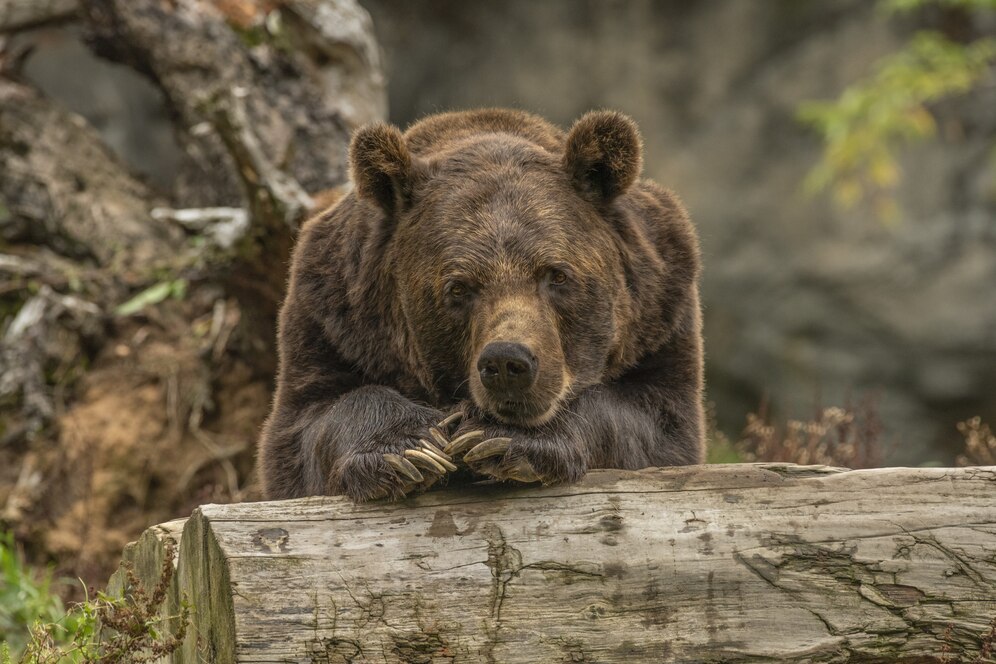Animals have evolved a variety of survival techniques during the cold. Water and nourishment are in short supply at the moment. Some relocate to regions with milder winters. Some develop a thicker skin coat as a means of resistance or adaptation to endure the effects of winter occurrences. Other creatures take a long winter’s slumber. Do you consider the tactics that animals employ to get through the winter? Perhaps you thought about bears entering hibernation in underground chambers. Any organism that can endure weeks underground without food or water and still come to the surface prepared to confront the outside world has discovered an incredible biological trick. In this article, we will learn more about hibernation and how long do bears hibernate.
Table of Contents
Understanding hibernation
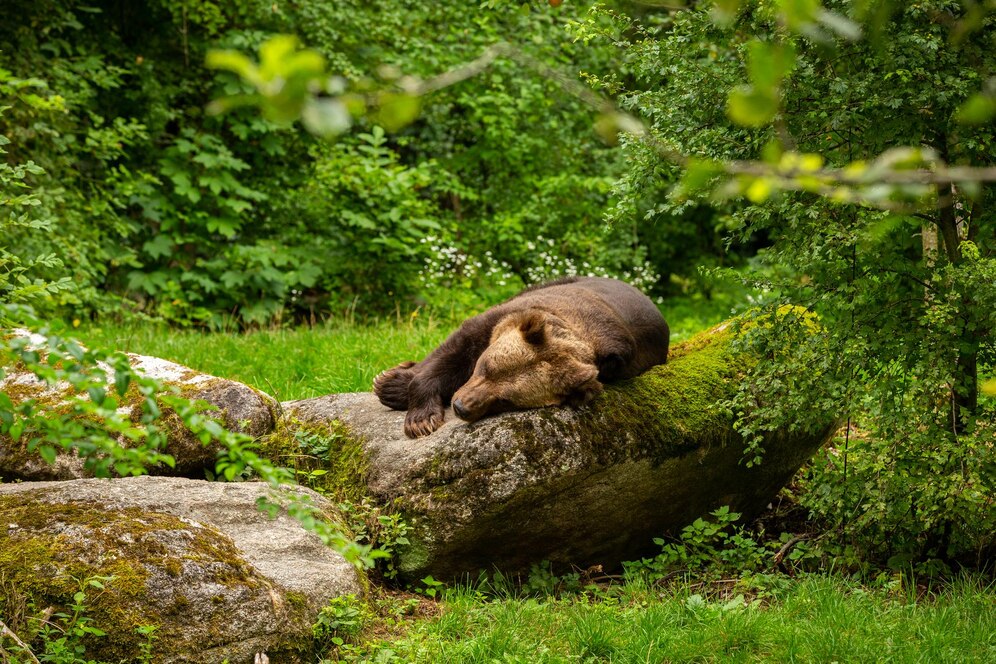
Animals that hibernate go into a latent state for the winter. There is no specific answer to how long do bears hibernate They sleep for weeks or months at a time. Their inactive status aids in their energy conservation. The hallmarks of hibernation include sluggish breathing and pulse rate. Moreover, it reduces energy expenditure and core body heat. To survive the months when there is little food available, mammals hibernate. The body uses body fat that has been stored from previous months to provide every calorie required for the hibernating phase. Due to its complexity, hibernation necessitates several modifications.
Do Bears Go into Hibernation?

The majority of people immediately think of bears when talking about hibernation. On the other hand, not everyone agrees that bears hibernate. An animal enters hibernation when its body temperature decreases to that of the surrounding environment. Bears are an exception to this. A bear will decrease its heartbeat and respiration. Nonetheless, they maintain remarkably high core temperatures.
Resuming activity after deep sleep is another significant change. The majority of hibernating creatures awaken gradually. But bears are capable of waking up from a deep nap quite quickly. Certain individuals contend that bears don’t hibernate because of these variations. Rather, they refer to what bears do differently, using terminology like inactivity, torpor, carnivoran sluggish, and wintertime slumber. Physiologists nevertheless generally agree that bears are hibernators. The physical stature of an animal greatly influences whether it goes into torpor or hibernates. Bigger mammals tend towards torpor, whereas smaller species typically hibernate.
Partial or temporary hibernation in bears
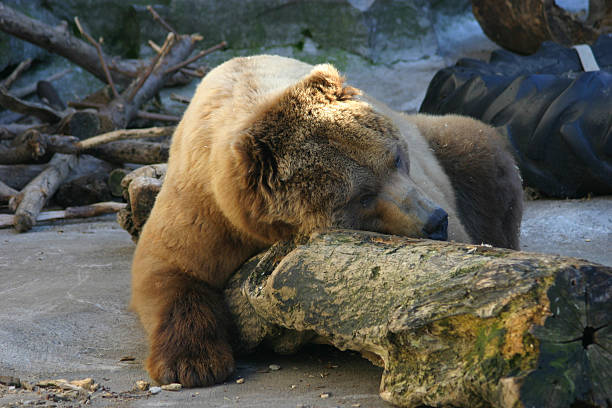
Torpor is another survival strategy employed by animals to get through the winter, much as hibernation. It is brought on by chilly weather and less availability of nourishment. Reduced respiration, heart rate, and energy expenditure are further symptoms of torpor. A bear has a modest drop in the body’s temperature. When it comes to how long do bears hibernate, a bear may go over a hundred days without consuming anything or urinating. They can convert urine into protein.
Torpor is not a choice and frequently lasts for a briefer time than hibernation. Torpor mammals keep their core temperature, respiration rate, and blood pressure normal when they are active throughout the day. However, they don’t do anything for the entire stage. Bears go into a deeper slumber than they usually do. It enables them to endure the cold and save energy.
How Much Time Do Bears Spend Hibernating?
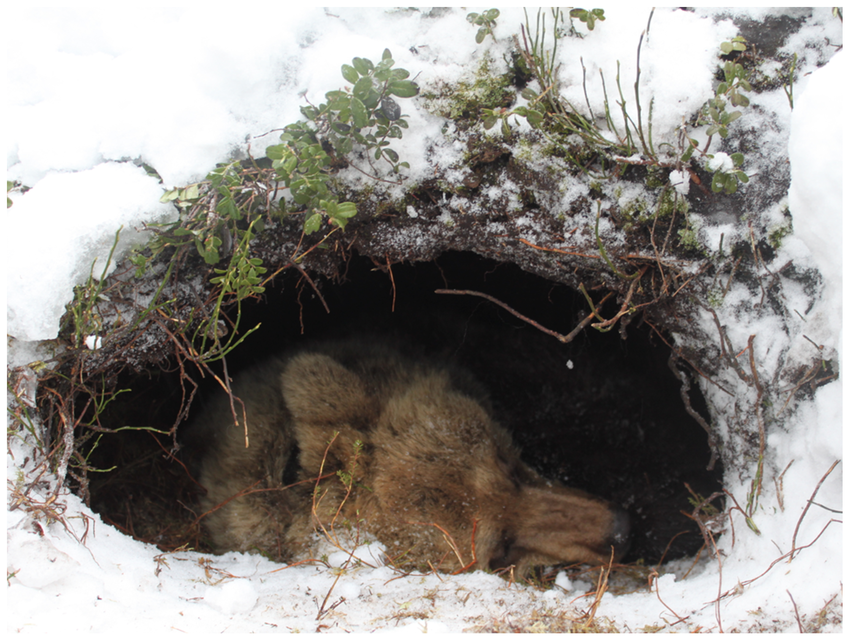
The duration of how long do bears hibernate varies across bear species. Their climate is the main factor. Bears hibernate in response to stimuli from their surroundings. As soon as they see snowfall or when the weather drops below freezing, they go into hibernation. But weeks in advance, they start to cool down physically, with a decrease in movement and a slowing of their heartbeat.
Certain bear subspecies will hibernate for the length of their pregnancies. Before hibernation, the moms will substantially boost their physical mass. While they remain inactive, they will go through their gestation. The cubs are born during the middle of the hibernation stage or sooner. The physique and general health of the cub directly reflect the maximum bodyweight the mother might gain before hibernation.
- During their seven to eight months of hibernation, black bears are unable to nourish themselves, drink, or relieve themselves.
- Approximately six and seven months is the length of hibernation for grizzly bears.
- Depending on the season, Mexican black bears may hibernate for as little as a few weeks or sometimes not at all. These bears don’t need to hibernate because of their warm surroundings.
- Brown bears in Alaska have an eight-to-ten-month hibernation period. In comparison to other bears, they usually hibernate for longer since they live in a colder area.
What causes bears to emerge from their hibernation state?
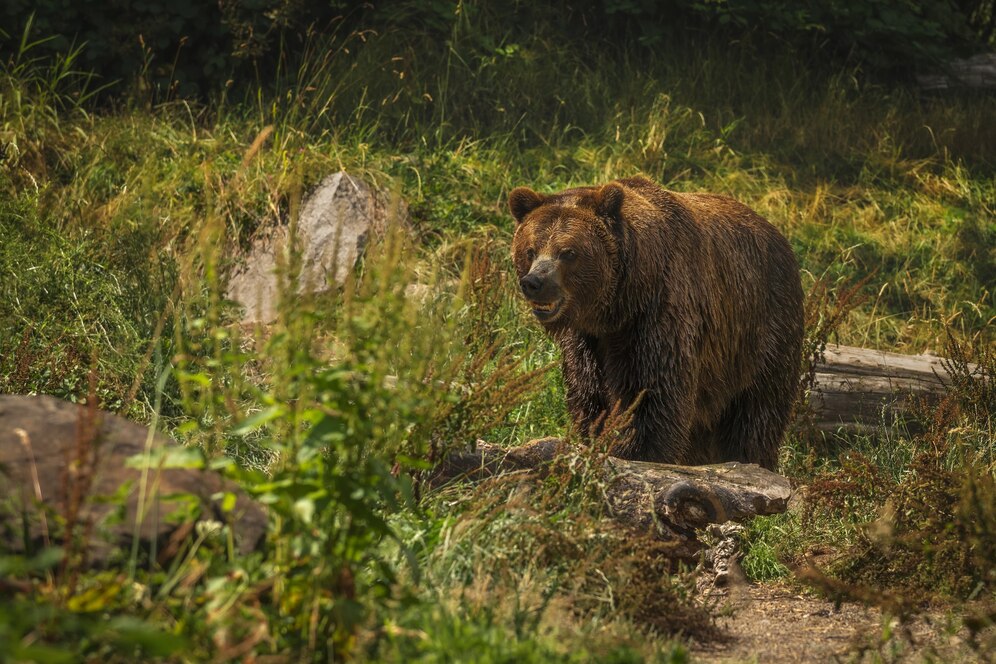
Once the temperature warms up, bears will emerge from their hibernating condition. Bears may emerge from hibernation early due to global weather trends. If a bear’s feeding cycle doesn’t continue to coincide with weather patterns, it might have devastating consequences. Plants may go without feeding if they haven’t begun to grow. They become more prone to disease as a result. Bears that awaken sooner also have a higher probability of encountering people.
In addition, bears are capable of emerging from hibernation when startled. Bears do not arise from dormancy as slowly as other mammals do. Thus, they can wake up quickly to protect themselves or their offspring in the event of loud sounds or potential danger.
How do bears choose a suitable place to hibernate?

Bears create their sleeping quarters, called dens. They frequently spend the winter in caves, tree trunks, or bear-made dens. Constructing a den typically takes between three and seven days. Den construction does, however, occur at different times for different bears. Some bears construct their winter homes for weeks before the time of year when they hibernate. Nevertheless, other kinds of bears wait until the last possible moment to dig their dens. The insulation materials are added to bears’ winter beds after they have dug or found a den. Leaves and branches are often what make up this structure. An extra covering of fur assists a bear in staying warm in wintertime.
Female den:
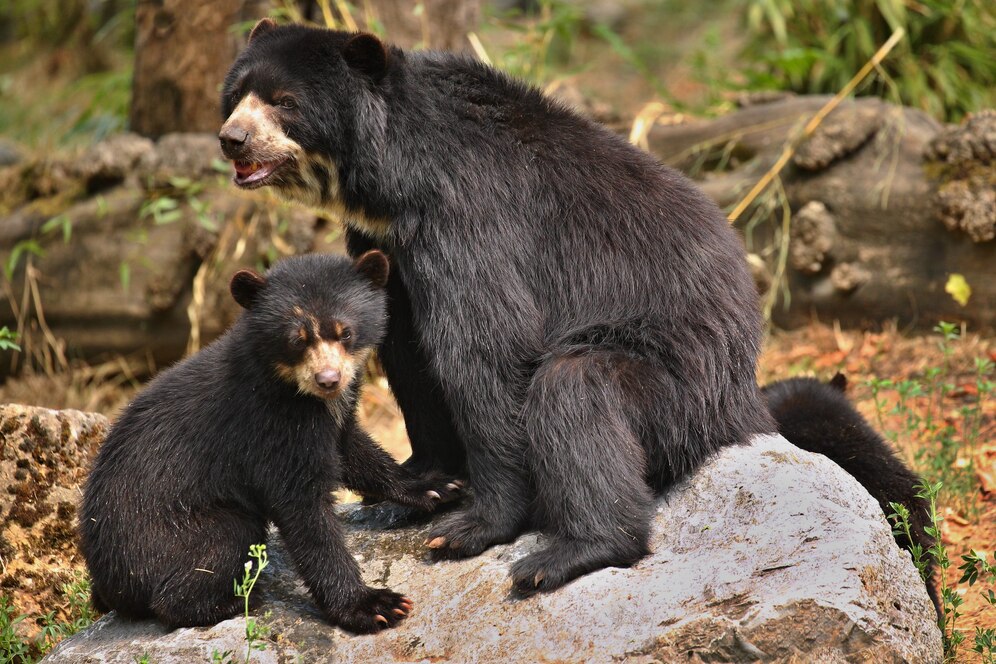
While bears don’t hibernate, they do exhibit behaviors comparable to it, such as building nesting dens and entering a latent condition. Through a snowfall, the expectant mother creates a birthing cave with a tunnel leading in and three separate spaces. After that, she goes into a hibernating-like slumber. But she isn’t sleeping, and her core temperature isn’t dropping either. As a result, the bear’s pulse rate drops from 47 to 28 bpm. She continues to spend time in the den feeding her offspring even after they are born. The mother bears 20–35 lbs of cubs when she opens the den opening. Upon birth, the babies weigh just 2 pounds.
Final words
Bears might choose to hibernate to save energy. It is to assist them in adjusting to food scarcity. The stage reduces the amount of time exposed to the cold weather. The duration of hibernation varies from a few days to multiple months. After reading this article, you now know the answer to “How long do bears hibernate?” The duration is species-specific. An animal goes into hibernation when its day duration decreases and its hormone levels fluctuate. It requires energy conservation. Most bears will put on some extra fat before hibernation so they can make it through the cold season.
FAQs
Q1. Why do some species go into torpor while others hibernate?
Because of the animal’s stature, the disparity is explicable. Smaller animals have more room to maneuver in the cold than their bigger counterparts. Although a tiny body mass facilitates the quick reduction of core body temperature necessary for winter hibernation, a bear’s large body cannot expel the required heat.
Q2. Would it be possible for people to hibernate?
The inability to convert urine into proteins and the limitations imposed by our enormous bodies prevent humans from hibernating. Humans’ capacity to go into a hibernation state remains unproven.
Q3. How can bears hibernate without drinking?
A byproduct of the metabolic process is water, which is achievable by breaking down fat stores. However, when hibernating, bears reuse their waste products rather than dumping them. While we sleep, our bodies break down urea, a potentially toxic waste product, into proteins that we may utilize to develop and repair our muscles and organs.
Q4. How does hibernation help animals?
Hibernation is an immensely critical process for animals since it allows them to save energy for the winter, eat less overall, and delay aging. When supplies are limited, hibernation provides a great way to stay hidden and defend yourself.
Q5. Why do bears lose weight after hibernating?
While hibernating for wintertime, some species of bears refrain from eating, peeing, and urinating. A person can only get their energy from their stored fat. While these bears slumber for four to five months without eating, they lose 24% of their stamina. After coming out of hibernation, bears are much leaner than when they went in.

